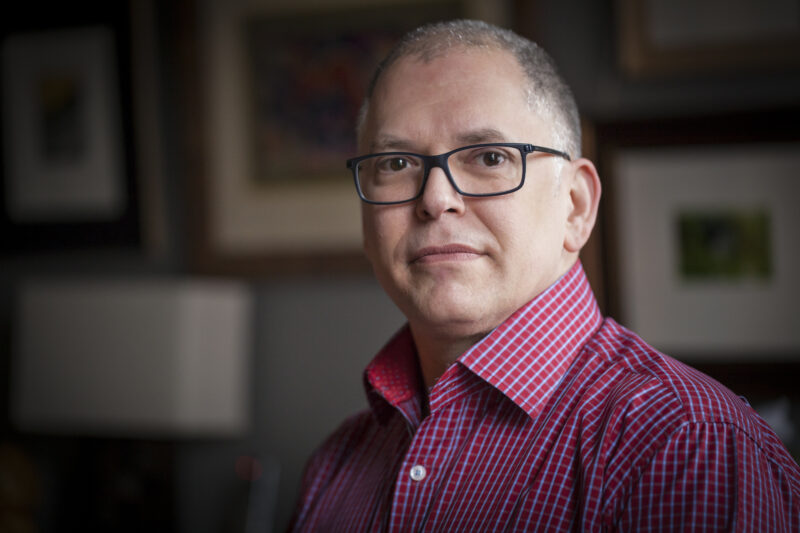
When I met my husband, I knew I wanted to be with him for the rest of my life, until death parted us. Most people feel that way when they meet the love of their life. But most people don't think that the time to part would come so soon. Or at least, when it does come, they don't think that they will have to fight for the basic dignity of having their marriage recognized.
Sadly, that is what John and I went through.
I met John in 1992, and for 21 wonderful years we built a life for ourselves in Cincinnati, Ohio. Weworked as IT consultants, participated in community organizations and doted on our nieces and nephews. For much of our relationship, because we were a gay couple, we thought that marriage would be closed to us. Even though we were like every other loving and committed couple that we knew, we were denied the protections and dignity that come with marriage.
In 2011, we received the devastating diagnosis that John had ALS or Lou Gehrig's disease. There is no cure. We knew that we had limited time. I had the honor of caring for John as ALS stole every ability from him. Rarely a day went by that he didn't apologize to me for getting sick, even though he carried no blame.
Two years after his diagnosis, we watched with great interest as Edie Windsor fought the woefully named "Defense of Marriage Act" in the courts. Edie's story resonated with us because Edie was fighting for recognition of her marriage to Thea Spyer following Thea's death. Like Edie and Thea, John and I knew that our fight would continue after John died.
Weeks after Edie's victory at the Supreme Court, we decided to get married. Ohio, where we built our home and our lives together, still does not permit same-sex couples to marry. Though we would have loved to be wed in our home state, our friends and family helped us charter a medically equipped plane to fly to Maryland. There, on the tarmac while still on board the plane, John and I were finally legally married.
We returned to Ohio to live out John's last days as a married couple. But Ohio refused to recognize us as married for any purpose.. We fervently hoped that John would live to see the day that our marriage would be acknowledged by our home state. The thought that John would be listed as "single" and the "surviving spouse" entry would be blank on his death certificate broke both of our hearts. We went to court seeking recognition of our marriage on John's death certificate. The judge granted our request to have his death certificate properly issued when the time came.
John tragically did not live to see marriage recognized for all gay and lesbian couples in Ohio. He passed away last October. He was only 47. And still, the state continues to seek to deny him his dying wish. Though I have John's death certificate that lists him as "married" and identifies me as his surviving spouse, the state has appealed the court's ruling and plans to remove my name from his death certificate should they succeed.
Nobody should ever have to suffer the indignities that John and I have endured. A ruling striking down Ohio's marriage recognition bans in the context of death certificates would mean no couple would have to live through the uncertainty that we did in the most painful moments of our lives. Every family deserves the peace of mind of knowing that they will be able to take care of each other in good times and bad, until death parts them. Every day that couples like John and I go on without that right is too long.
I continue to fight for John's last wish to have our marriage respected. And I fight for all caring and devoted Ohio couples, too.
James Obergefell is a plaintiff in Obergefell, et al. v. Hodges, one of four marriage equality cases that will be heard by the U.S. Supreme Court this term. The ACLU is proud to be co-counsel in this case.
Learn more about marriage for same-sex couples and other civil liberty issues: Sign up for breaking news alerts, , and .

